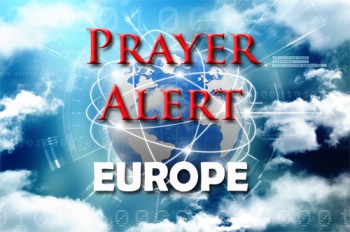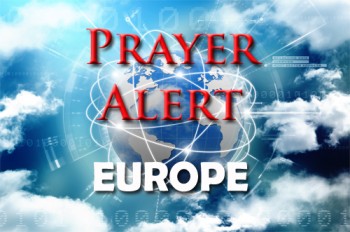Therapeutic church gardening
Lambeth Palace has hosted a conference exploring links between mental health and gardening and has called for churches to use their green space to offer ‘therapeutic gardening’. Green Health Live 2, brought together chaplains, public health experts and healthcare professionals. They showcased innovative work being done by parishes to provide therapeutic gardening spaces - and encouraged more churches to work with local mental health charities and medical professionals to do the same. A survey of clergy revealed that mental health issues were at the top of the list of problems faced in their parishes. Research shows that gardening helps to relieve the effects of depression, loneliness and a range of mental health issues, but many people, particularly in towns and cities, do not have gardens of their own. However churches often have spaces where a garden can be created to offer basic gardening experience, access to nature and companionship.
One in five young women have self-harmed, a study reveals
One in five girls and young women aged 16 to 24 have cut, burned or poisoned themselves, according to research that mental health experts said was ‘very worrying’. The findings, published in the Lancet Psychiatry journal, show that self-harm has risen across both sexes and all age groups since 2000. In the population as a whole it almost trebled by 2014 with the number of people cutting themselves the highest category. . They harm themselves as a way of coping with anger, tension, anxiety and depression. However, a lack of NHS services and people’s unwillingness to seek help means that more than half of those who self-harm do not receive any medical or psychological care. It is most common among females aged 16 to 24. So many young people are self-harming that it risks becoming normalised and increasing the number who kill themselves when they are older. Pray for the NHS, Education Authority and Social Services to develop teaching plans that will help people learn more appropriate ways of dealing with stress.
President Trump ‘actions betrayed the Gospel’
Mr Trump sparked controversy minutes before he landed at Stansted Airport on his state visit by calling the London Mayor a ‘stone cold loser’ on Twitter. It followed Sadiq Khan's comments that the UK should not ‘roll out the red carpet’ for Mr Trump. Simon Barrow from Christian think tank Ekklesia said Mr Trump's language was unacceptable; saying, ‘It doesn't seem very presidential behaviour and I'm tempted to ask, 'who would Jesus call a loser?' that wasn't the language of Jesus. ‘Jesus blessed the poor, he welcomed the stranger, he called on his followers to put away the sword, he honoured God's creation and he blessed those who cursed him. He joined London’s protestors as an act of Christian witness against many of the things that President Trump stands for which he believes are anti-gospel and being promoted in the name of Christianity.
Germany: Two prayer requests
With the tremendous growth in what is now medically possible, organ donation raises many questions from a Christian-ethical point of view. Our society urgently needs to ask God for guidance and leadership in these increasingly far-reaching questions of life and death. The German parliament will discuss and vote on organ donation proposals in the autumn without a party whip. We have been asked to pray for a God inspired and guided debate on how parliament should proceed with the organ donation question. Secondly, Germany has about twenty large and influential criminal family clans, with their fingers in many pies, creating complex lawless challenges across the nation.











